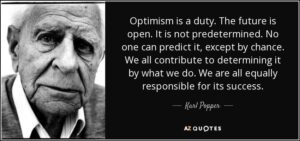
Thought Leadership: One hundred years ago, if you were an elevator operator, you likely feared the creation of “humanless” elevators. Seventy-five years ago, telephone operators feared for their jobs. Today, grocery clerks have the same fear. In the near future, an increasing number of jobs will be automated, including those of Uber and taxi drivers. This will be difficult for many people–especially those who are displaced. And, yet, just as I don’t think too many people would desire to return to a world of elevator and telephone operators, I think in the near future we will let go of our fears of “driverless” cars and those workers will find even more productive outlets in which to labor on behalf of humanity.
Think Younger: My “reverse mentor,” Meghan McGowan, has written an excellent article entitled “The Future of Marketing is Old School.” One of the more startling takeaways is this: The average person spends 88 days a year on their smartphone. I think she is right in saying that younger people, especially those belonging to Gen Z, will begin putting down their devices and engaging more IRL. (“IRL” in case you didn’t know–and I did not–means “In real life.”)
Think Faster: In my youth, I was an avid runner and ran multiple marathons. Today, “supershoes” are reshaping distance running. The advances in material science, which have enabled these advances, are not the most earth-shattering, but they are helping runners break world records and are keeping people healthier. My point: Not all technological advances have to be big to make a meaningful impact.
Think Different: China has begun launching a network of 2,800 satellites to create a supercomputer in space. What is interesting is that this “supercomputer” will use solar energy from outer space as well as release its heat into space. The implication is that the energy usage and the carbon footprint of this supercomputer will be radically lower. It is a good example of the power of thinking differently.
Thoughts from Beyond: Electricity has enabled great developments in modern society. One of the easiest to overlook is how affordable electric light has become. This, however, is not without cost. An estimated 80 percent of the world’s population no longer has exposure to the night skies due to light pollution. Without this exposure, many people have lost one of their closest connections to the grandeur of the Universe. We have also lost one of the best ways to experience awe and wonder. With this in mind, let me ask you a question: Of the two photos below: Which do you think is more beautiful?


Now, I encourage you to think about what you may be missing by not seeing the night sky. For me personally, I feel as though I am missing one of the best ways to connect with our Common Universal Creator.
Afterthought: “The point is not AI becoming conscious. The point is humans realizing they already are–and have forgotten.” James Breeze
